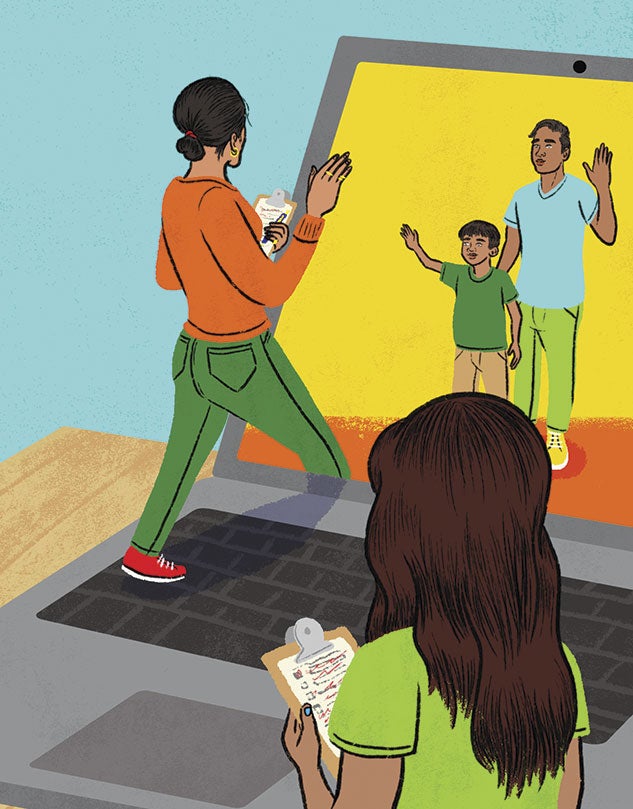Alternative Activism
Students found a way to recreate a rich calendar of spring break service trips.

Of the 85 students who participated in one of 11 Alternative Spring Break programs this year, all of which were virtual due to the COVID-19 pandemic, Anvita Kandru and Christa Westheimer were the only ones who did not know each other prior to signing up or choosing their research topic together. Their topic — the impact of forced migration on the mental health of refugees, asylees and asylum seekers — chose them.
Kandru’s interest was sparked when she joined the Partnership for the Advancement and Immersion of Refugees at Rice and started working with refugees in Houston public schools. “Refugees and asylees encounter so many challenges during all stages of their journey and even after they get to their desired destination,” Kandru, a Brown College junior, said. “I wanted to learn more about these challenges and how to help, but also to learn about their cultures, resilience and strengths.”
Westheimer, a McMurtry College sophomore, was introduced to the difficulties of refugees and asylees when she got involved with the Center for Civic Leadership as a freshman and subsequently started volunteering at a local literacy center as an English as a second language (ESL) instructor. “Being an ESL instructor to a class of mostly refugees really opened my eyes to the ongoing challenges refugees face once they arrive at their host country,” she said. “The effects of such challenges are vast and can be long term if intervention and continued support is not available.”
To better understand those challenges, Kandru and Westheimer signed up to be site leaders in the 2021 Alternative Spring Break program, which is hosted by the Center for Civic Leadership. The program is typically an immersive experience where students travel to the areas they are trying to impact, but the pandemic shifted that experience online in 2020 and 2021.
For months, the eight students in Kandru and Westheimer’s group researched the problem, forged relationships with community partners such as the Cabrini Center at Catholic Charities and Amaanah Refugee Services, and came up with possible ways to help. These included mental health modules that teach children about self-care and fact sheets that contain mental health resources for clients of organizations that help refugees and asylees. Kandru and Westheimer’s group also is working on putting together an art show at Rice that displays the art and craftsmanship of local refugees and asylees.
“We learned so much and are developing some tools that will hopefully help empower refugees and asylees to lead the lives they want in their new homes,” said Westheimer. “We also both gained a new friend,” Kandru said. “Alternative Spring Break, even online, was a worthy pursuit in terms of contributing to the community in a sustainable and ethical way.” Both students are pursuing the Civil Leadership Capstone course in the fall.
— Kimberly Vetter
